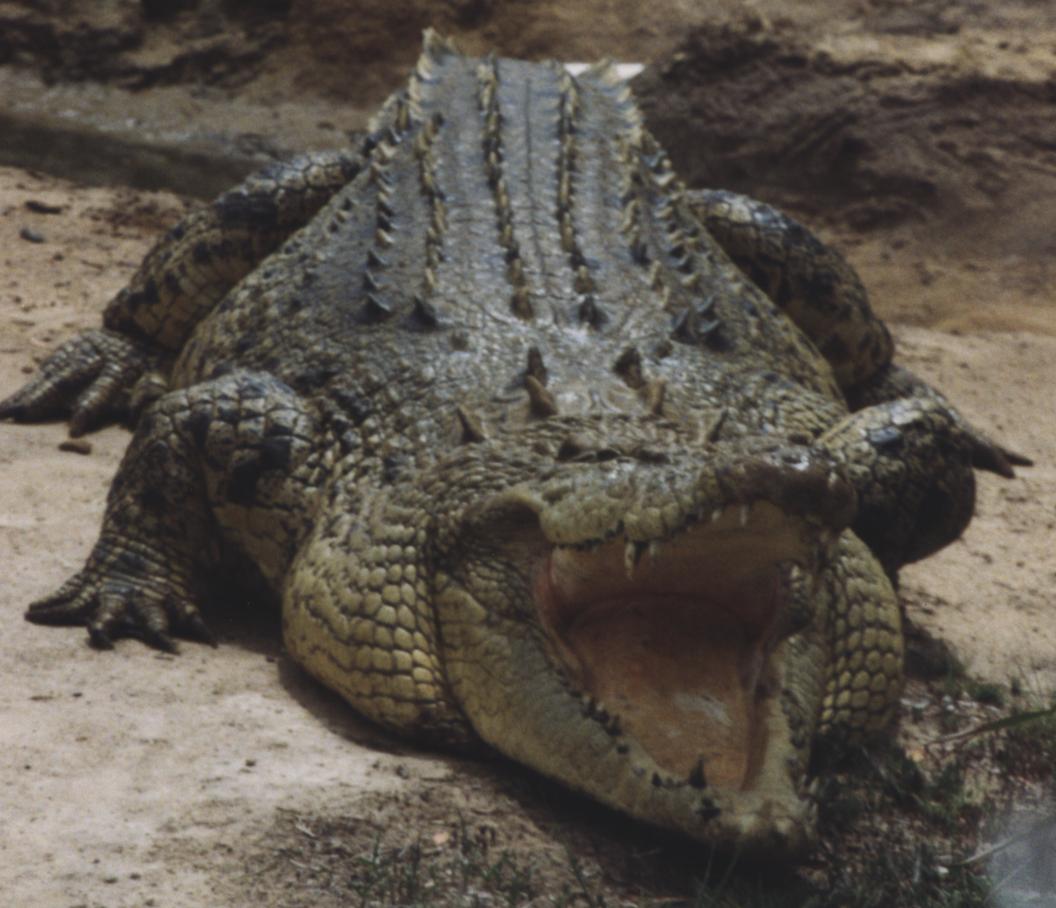rocky mountain wrote:MeDeFe wrote:rocky mountain wrote:extinction is not evolution. humans have driven many animals into extinction, and you don't say they became extinct because of evolution. the dinosaurs did not become extinct because of evolution either. i say it was a flood, you say it was an asteroid, either way, it was sudden, and does not prove evolution.
wiki wrote:All organisms on Earth are descended from a common ancestor or ancestral gene pool.
so what was that common ancestor. or is that the "missing link?"
the picture beside it is the "homonoids." who cares if we look like them. humans have more similar DNA to a chicken and E. Coli.
The dinosaurs did become extinct, and it was probably a pretty big event that lead to it. A major change in their environment most likely, and a few million years later we get a lot of fossils of mammals while before everything was reptilian. You know, that corresponds pretty well with what one would expect in light of the theory of evolution, the dinosaurs had been around for 100 million years or so and probably become highly specialized, eating only certain plants for example, you can see the same in any savannah, elephants, gnus, zebras, antelopes all eat different plants and don't have to compete for food with each other which is good for all of them, the downside is that if there is a small change in the environment and one of the plants disappears or has trouble growing, one species will be in a lot of trouble. If there's a big enviromental change and a major change in what grows and what does not, they're all going hungry, then the predators go hungry, and some sort of animal noone had even noticed before might come in and take over the whole operation because it's better adapted to the new climate.
From what we can see today it's pretty safe to conclude that mammals were better adapted to the new conditions that caused the dinosaurs to die out, and once the dinosaurs were in decline and did not pose a threat any more the mammals that were around could diversify quickly. How's that not evolution?
Also, what's your proof for that bold claim that our DNA is more similar to poultry or bacteria than with those now-extinct hominoids?
i've seen in textbooks and heard from reliable sources.
its not evolution because isn't evolution a long process? would the climate change have happened over long periods of time, in which case the dinosaurs would have adapted? if it was a quick climate change, and the dinosaurs died off fairly quickly, then it wasn't a long process. also, isn't evolution the changing of one species to another? the dinosaurs did not change into the mammals, so why is that evolution?
If you'd pay attention to the first post you would notice I said "a few million years later", that's how quickly mammals diversified after the dinosaurs died out. The evolution of such diverse mammals is only fast when compared to the timescales observed otherwise. About your "wouldn't the dinosaurs have adapted" argument: if a meteor (or shower of meteors) strikes earth and throws up enough dust to reduce the amount of sunlight that filters through the athmosphere, leading to global cooling, it's a fairly quick process that could possibly take place within less than 1000 years (which is probably a far too high guesstimate anyway), that is indeed "fairly quickly", as I said before, dinosaurs were probably highly specialized and vulnerable to changes on a large scale.
And some dinosaurs did survive until today, you might even have seen them in a zoo or even in the wild if you've been abroad, they look something like this.

And no, evolution is not "the changing of one species into an other", evolution is every species changing a little all the time in response to a myriad of factors in their environments (including other species). If you take what a species looks like now, and what descendants of this species looks like in 100000 years, they might be different enough that one would call them different species, but there is no line which divides them into species 1 and species 2 (or species 27).
There were most likely already mammals around when the dinosaurs existed, but they were sidelined because there were few evolutionary niches around after 100M years of dinosaurs, once the larger part of the dinosaurs died off relatively quickly (like within 1000 years, which is almost nothing) there was no constraint on the evolution of these mammals any more. If the world is full of larger predators and highly specialized feeding machines, your best chance of surviving is by being small and eating anything you can get, be it plants, eggs, insects, or other animals (whether dead or smaller than you). Such an animal would be much more likely to make it through any global environmental changes, don't you think?
And what are those reliable sources? Do you have any links to publications or something?




































































